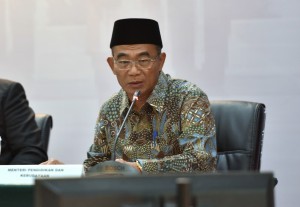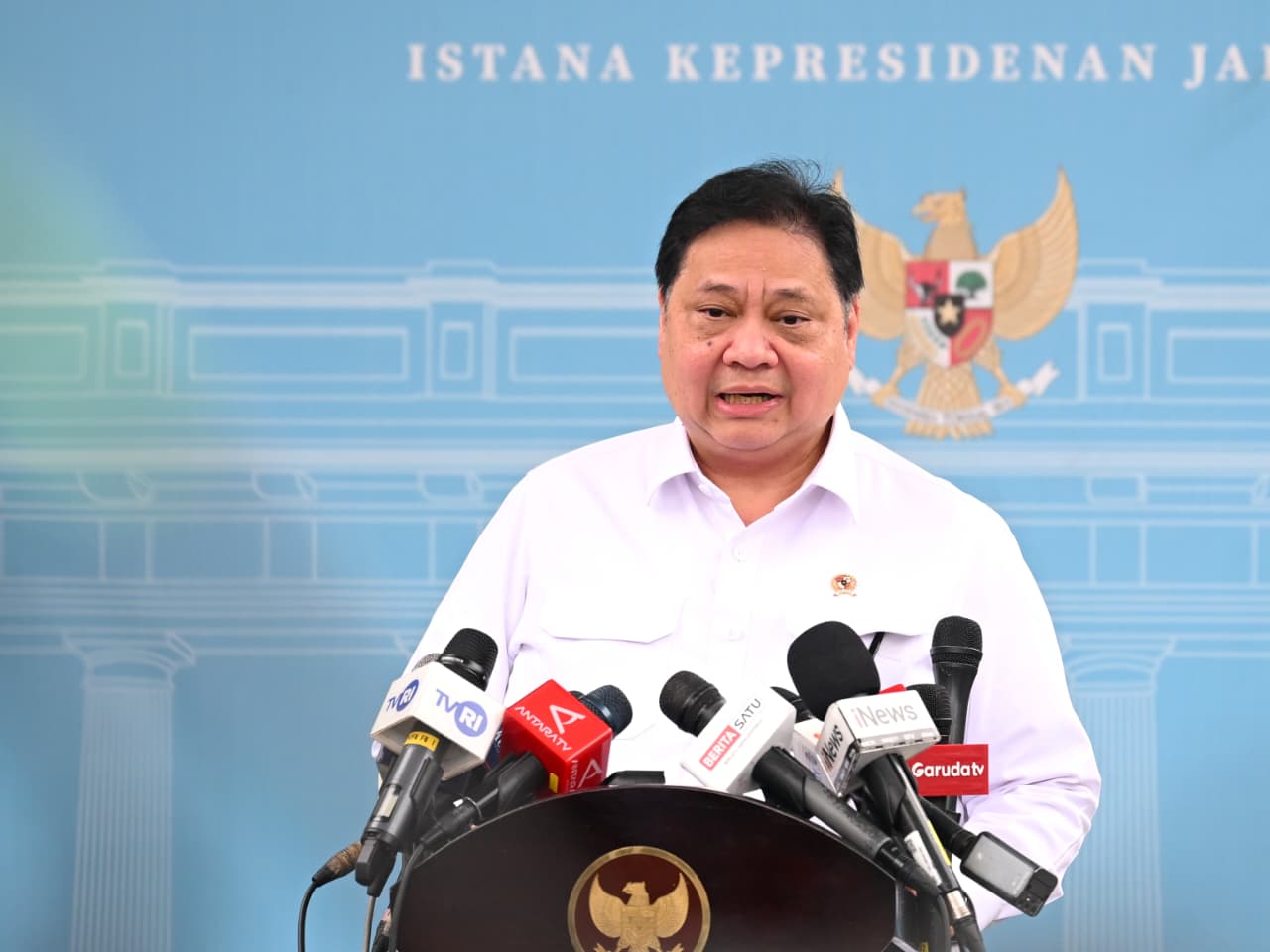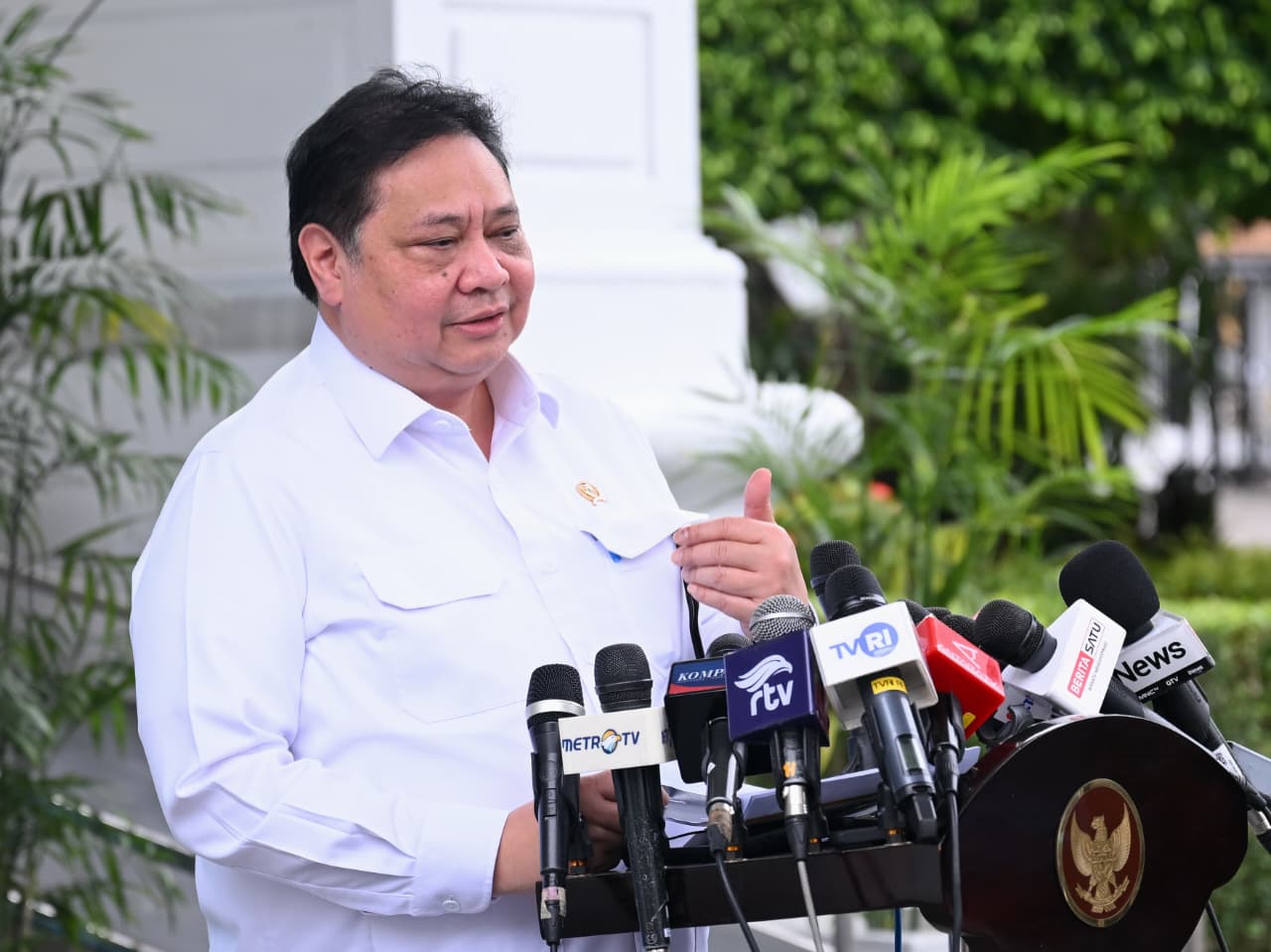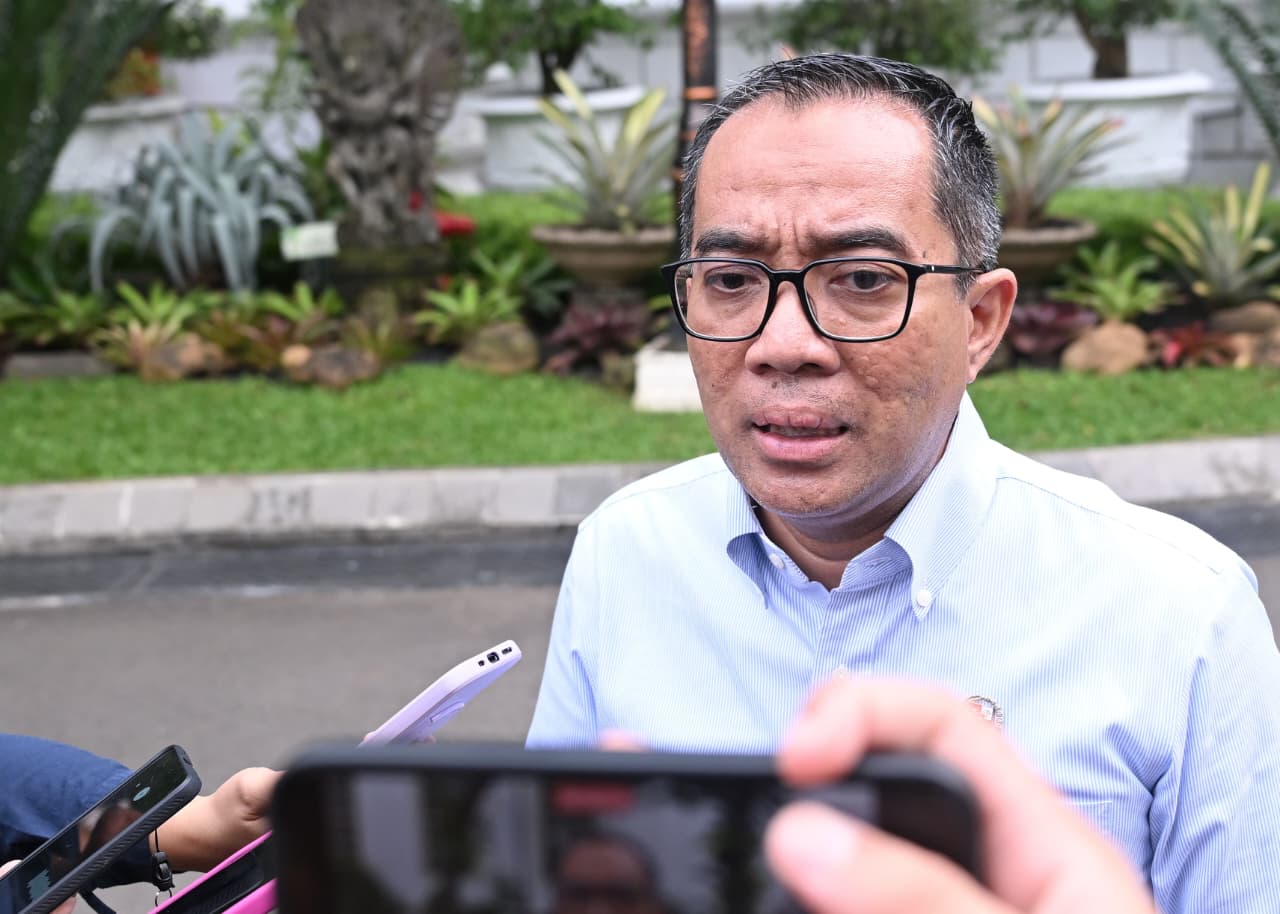Govt Spends Rp35.7 Trillions on Indonesia Smart Card Program

Minister of Education and Culture Muhadjir Effendy talks in press conference on 4-year Report of Jokowi-Jusuf Kalla Administration in Jakarta, Tuesday (23/10). (Photo: PR/Rahmat)
From 2015 to August 2018, the Government has distributed a total budget of Rp 35.7 trillion for the Indonesia Smart Card (KIP) to 27.9 million students across Indonesia.
This is one of the flagship programs of the Working Cabinet launched by President Joko Jokowi Widodo to expand students access to good education, both through formal and non-formal channels, Minister of Education and Culture Muhadjir Effendy said at the press conference on 4-Years Report of Joko Widodo-Jusuf Kalla Administration, in Jakarta, Tuesday (10/23).
According to him, the achievements of the KIP in 2015 were 10 million, then 10.9 million in 2016, 7 million for early 2018, and later in November 2018 there will be distribution for the third stage of KIP. The total budget of the KIP from 2015 until August 2018 reaches Rp 35,740,676,660.00, Muhadjir said.
Meanwhile, the Governments focus on this KIP program is the mechanism of the fund disbursement that was originally only an identity card to withdraw money in certain locations into ATM cards so students can take it anytime.
Regarding education institution, Muhadjir explained that his ministry is working together with Coordinating Ministry for Economic Affairs to revitalize Vocational High Schools from its role as supply side to demand side. We start from the public needs and then arrange the curriculum, not the other way around, he said.
The Minister added that the Government also now involves industries to formulate curriculum and its practice. Now we are trying to put 40% of the vocational students to join industries, he said.
To support this plan, Ministry of Education and Culture has built 560 technoparks as a place to produce items with industrial standards. So the students can produce standardized items in accordance with industry regulations. We expect the results can be marketed using the industry partner label, Muhadjir added.
Furthermore, according to Muhadjir, there are new vocational schools that must be established, namely: 239 Maritime Vocational Schools, 279 Agricultural Vocational Schools and 136 Tourism Vocational Schools. We still need to establish vocational schools specializing on creative industries, such as films, but the budget is inadequate, he said
Regarding the quality improvement of the teachers, Muhadjir said there are currently 1,726 million teachers who have received certificates, 9,161 Frontline Teacher to supply the needs in the border areas, and 6,077 Double Expertise Teacher. The double expertise teacher is a vocational school teacher that we give scholarship to master their skills, he explained.
Meanwhile on illiteracy eradication, according to Muhadjir, in 2015 the percentage of illiterate people in Indonesia was 3.56%, and in 2017 the number dropped by 2.07%. We implement four strategies to eradicate illiteracy: supporting literacy activities, donating books, moving study groups in each village and developing reading corners, he concluded. (MAY / RAH / ES) (STU/EP/Naster)








